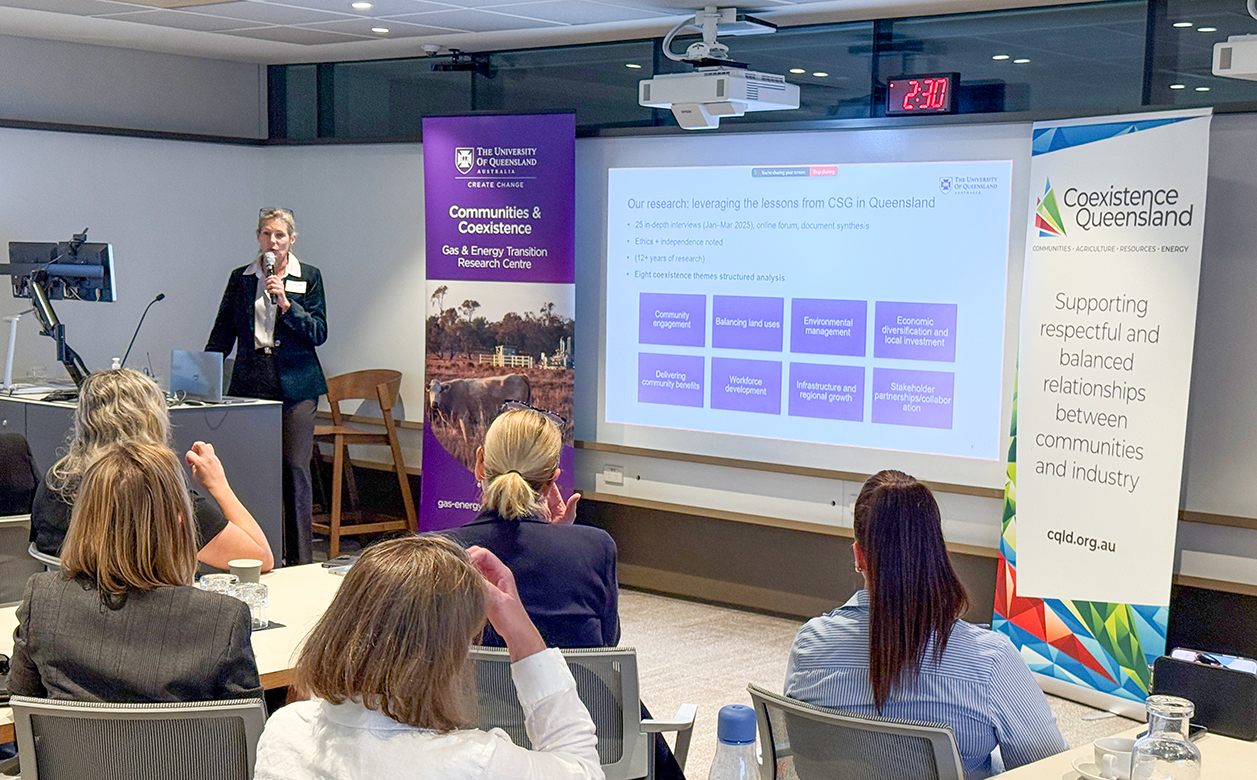
Queensland’s experience with coal seam gas (CSG) development holds vital lessons for Australia’s rapidly expanding resources and energy landscape, according to new research released by The University of Queensland’s (UQ) Gas & Energy Transition Research Centre.
Leveraging the Lessons from Queensland’s Coal Seam Gas Development – commissioned by Coexistence Queensland – draws on more than a decade of research, in-depth interviews, online engagement, and input from regional communities to capture what drives social licence and good practice for industries working in rural and regional Australia.
Coexistence Queensland CEO Warwick Squire said the research is designed to provide practical, evidence-based insights for developers, governments, and landholders alike.
“Queensland has already learned some hard lessons through the CSG experience,” Mr Squire said.
“The research shows we can turn those lessons into a blueprint for the future.
“This not only supports industry approvals and delivery but also ensure Queensland’s regions share in the long-term benefits of development.
“By embedding respect, transparency and collaboration from the outset, resources and energy projects can build stronger relationships with communities, reduce conflict, and leave a lasting positive legacy.”
UQ Associate Professor in Social Performance Dr Kathy Witt said leveraging the lessons of the past provides a solid foundation for future sustainable coexistence.
“Our findings show that coexistence works best when it is co-designed upfront, rather than retrofitted after issues arise,” Dr Witt said.
“Councils and communities must be engaged as central partners, and independent oversight is critical to building trust.”
The report outlines best practice examples ranging from community consultation committees and land access frameworks to regional economic diversification initiatives, benefit-sharing agreements, and workforce development programs.
It also underscores the need for stronger government coordination, transparent compliance reporting, and locally tailored planning support to ensure rural and regional communities are ready to host the infrastructure of the future.
UQ and Coexistence Queensland extend our gratitude to all contributors to the research for their valuable feedback, which has been instrumental to the development of the report.



